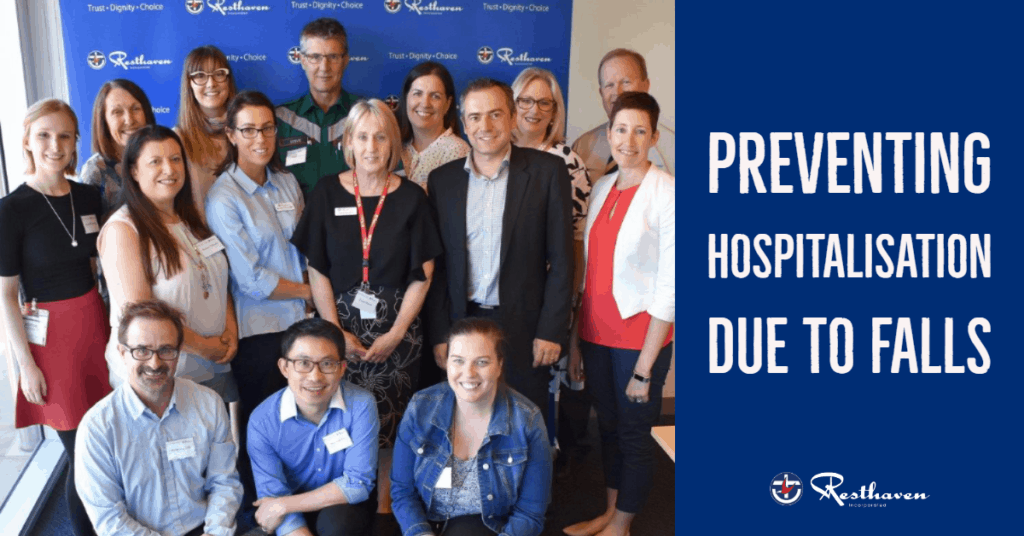
Preventing hospitalisation due to falls
‘Having to go to hospital is traumatic for anyone, and especially so for older people. Any steps that can be taken to prevent unnecessary hospitalisations is a positive step in the right direction,’ says Resthaven Executive Manager Residential Services, Tina Cooper.
‘That is why Resthaven is delighted to continue our work together with Monash University’s Centre for Medicine Use and Safety at the Monash Institute of Pharmaceutical Sciences.
‘Project PREVENT (Pathways to Potentially Preventable Hospitalisations in Residents of Aged Care Services) aims to use previous and new research to identify new strategies to prevent falls that lead to hospitalisation for residents of aged care homes.
‘Previous research identified that falls are one of the leading causes of hospitalisations from aged care services,’ Ms Cooper explains, ‘so preventing falls and fall-related hospitalisations is a priority. Falls can result in loss of confidence, injuries and fractures.
‘Very few studies have investigated whether an admission to hospital could have been prevented -that’s where Project PREVENT comes in.’
Project PREVENT brought together a team that included clinical pharmacists, ambulance service representatives, a geriatrician, general practitioner, registered nurses, physiotherapists and consumer representatives.
The team conducted an in-depth review of 47 consecutive fall-related hospitalisations, identified the root causes of falls, and made recommendations for preventing hospitalisations.
Monash University’s Professor Simon Bell said, ‘Working with Resthaven, we’ve been able to identify new strategies to prevent injurious falls and to prevent unnecessary hospital transfers when a fall does occur. These strategies can form the basis for new approaches and interventions that will improve resident well-being.
‘The strategies for preventing hospitalisation include pharmacy alerts when a new medicine is started or a dose changed, inclusion of ‘falls risk status’ on medication charts, less intensive blood pressure lowering, and better access to mobile imaging services. The importance of regular medication review was also highlighted.’
Tina added, ‘The study highlighted the need for a collaborative approach to understand frailty, falls risk and medication management regimes and the impact of these complexities within the constraints of the current aged care system.’
‘Resthaven will continue to review and have these collaborative conversations.’
Professor Bell said, ‘Project PREVENT also reinforces the value of residential medication management reviews (RMMRs) to help ensure each resident’s medication regimen is consistent with their current goal of care.
‘This is consistent with the Royal Commission into Aged Care Quality and Safety Interim Report recommendation to amend the funding and eligibility criteria to increase the uptake, enhance the quality, and monitor the follow-up RMMR recommendations.’
‘Resthaven has an accredited clinical pharmacist who advises safe and effective medicine use and conducts RMMRs for residents on referral of their general practitioner,’ Tina explains.
‘This is a very important service for Resthaven residents and clients.’
The latest findings of Project PREVENT were recently published in the journal, Aging Clinical and Experimental Research: https://link.springer.com/article/10.1007/s40520-019-01407-z
And Journal of Applied Gerontology: https://journals.sagepub.com/eprint/SC2KNXNHIZDDDEJJSTMF/full#.Xd4k-dW1dCc.twitter
Resthaven supports older people and their carers throughout metropolitan Adelaide and regional South Australia.
